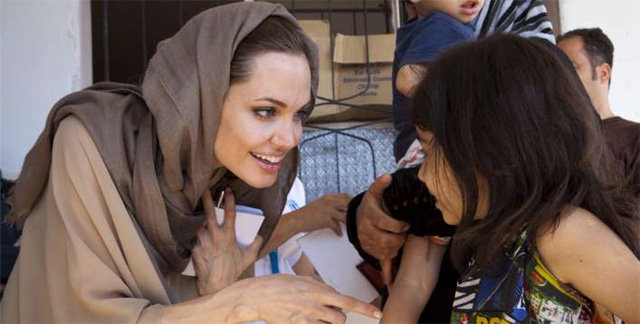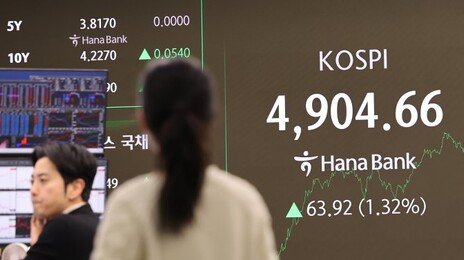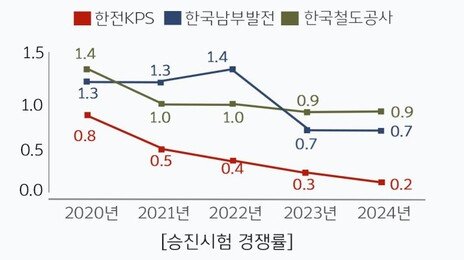공유하기
[Exclusive Interview]Angelina Jolie : ‘A Billion Young People At Risk Because of COVID-19 School Shutdown’
- 동아일보
-
입력 2020년 4월 1일 03시 00분
글자크기 설정

Academy Award-winning actress and humanitarian Angelina Jolie had a special message for the world youth in the imminent age of Artificial Intelligence (AI) while calling for attention to displaced people who may not even have the luxury of clean water for washing hands or social distancing during the coronavirus pandemic.
When asked how she would prepare her children for the dramatic changes in the age of Al, Ms. Jolie said “I tell them to hold on to what they know to be right and to value truth, honesty and integrity. I would say to young people anywhere, don‘t listen when adults tell you ’that‘s just the way things are’.” In an exclusive written interview with DongA Ilbo Daily, Ms, Jolie also had a special message for her fans around the globe who have been deeply affected by the coronavirus pandemic. “My heart goes out to the people of Korea and everyone in the world who is suffering as a result” she said, while emphasizing the greater international cooperation. “We are all part of the solutions that are needed” she added.
Jolie, a special envoy for the UN‘s refugee agency, the UNHCR also said: “half of students worldwide is out of education currently due to school shutdown”. She added: “some children depend on school to get one meal a day that can help them survive extreme poverty. Other young people may be more vulnerable to abuse or domestic violence. So there’s an urgent need to help young people to continue their education”. She has recently donated USD 1 million to ‘No Kid Hungry’ organization to help those in need during the ongoing coronavirus pandemic. When asked about the true role of journalism upon commemorating centennial anniversary of DongA Ilbo Daily, Ms Jolie emphasized the importance of seeking the truth but “hold power to account” as well.
The Hollywood star also shared her thoughts on the recent outcome of Harvey Weinstein trial for the first time.
The full transcript of the exclusive written interview is as follows:
―The world is suffering with coronavirus outbreak. Korea has been one of the most devastated areas, with rising infections. Do you have any message for Korea, and your fans in Korea?
“My heart goes out to the people of Korea and everyone in the world who is suffering as a result of coronavirus. I hope we will see greater international cooperation to fight this as one international community, and share our resources and knowledge to get through this as best we can ¤ together. I hope it will remind us all of the value of global cooperation.”
―What is your focus during this crisis?
―Next year it will be 20 years since you joined UNHCR. I read that you have done nearly 60 field missions. What are some of your projects with UNHCR that you would like to highlight?
“The immediate focus is of course the coronavirus and impact it could have on the world’s displaced people who are so vulnerable. Many, for example, live in refugee camps where they don‘t have the option of self-isolating. Or where they might not even have access to water to wash their hands regularly. The most important thing to understand is that even before the virus, the situation for refugees globally was dire, with chronic shortfalls in basic humanitarian assistance including, for instance, a lack of basic healthcare. So while of course it is right that governments are moving quickly to protect their own citizens, it is urgent that we help more vulnerable societies and communities that could be devastated by this disease. South Korea is one of the most important donors to UNHCR, both as a nation and through your private sector. Your country has suffered war and displacement in the past, but you draw on this to be a protector of refugees today, and that is something UNHCR is very grateful for. I hope South Korea might be one of the countries that could set an example of moral and practical leadership in this effort.
―I heard that you were very supportive of your son Maddox’s choice to attend a university in Korea, why?
―What is your impression so far of Korea?
”I admire the way South Korea has become such a successful modern economy while also preserving the culture and values that have made it unique for centuries. We are all so happy as a family that we will have the opportunity to get to know South Korea even better through Maddox, and with him, during his studies.“
―You once said ”nothing would mean anything if I didn‘t live a life of use to others“, how did you come to realize this? Among many social issues, do you have any particular guideline as to which issue to endorse and how to raise global awareness?
”I think the problem we face is not a lack of awareness. It is holding those in positions of authority and leadership to account. Requiring them to live up to promises that have been made. Nowadays, an image or story going viral seems to have become an end in itself. But the challenge for all of us is what happens next. What comes after awareness. When you have got everyone’s attention, how do you sustain that and hold governments to their commitments, in a world where there is such a flood of information every single day? So my advice would be: immerse yourself in the issue you are concerned about, and become as knowledgeable as you possibly can about the facts, the laws and the change that is needed. That will help you to be as effective as possible in pressing your case and seeing it through.“
―In a recent interview with BBC, you implied a possible transition to politics is not entirely dismissible. Under what circumstances would this become a more serious consideration for you?
”It depends what you mean by politics. I think many people nowadays are involved in the political discussion ¤ particularly young people ¤ without holding elected office. And many of the problems we are dealing with are so vast that the idea that governments alone can solve them is no longer true, if it ever was. Look at the coronavirus. Yes, there are things that only governments can do, but only if they work together with scientists, doctors, nurses, epidemiologists and regular citizens ¤ we are all part of the solutions that are needed.“
―In the age of AI(Artificial Intelligence) where revolutionary changes will occur, what do you tell your children to value the most? What would you tell particularly the younger generation around the globe to dream, and how to prepare for such changes?
”I tell them to hold on to what they know to be right and to value truth and honesty and integrity. I would say to young people anywhere, don‘t listen when adults tell you ’that‘s just the way things are’, or when there are attempts to divide and sow fear, or stigmatize others, for supposed political advantage. Know your own mind. Value friendship and loyalty and people who are prepared to fight alongside you to defend values that transcend borders.“
―A Hollywood mogul Harvey Weinstein was recently found guilty on two charges while being acquitted on other charges in New York criminal trial. As someone who had also received ‘unpleasant advances’ from him in the past, what is your thought on the outcome of the trial?
”I respect the women who took part in the trial and bravely put evidence forward. Sadly, the issue is bigger than this one case. In my experience, there is much more that people choose to accept, or don‘t feel the need to change.“
―What would be your message to victims of sexual harassment around the world who still suffer in fear, shame and silence?
”To know that they are not to blame for what they have experienced, they are brave, good people, and the stigma and shame should be on the perpetrator not on them.“
―In a recent interview with BBC, you implied a possible transition to politics is not entirely dismissible. Under what circumstances would this become a more serious consideration for you?
”It depends what you mean by politics. I think many people nowadays are involved in the political discussion ¤ particularly young people ¤ without holding elected office. And many of the problems we are dealing with are so vast that the idea that governments alone can solve them is no longer true, if it ever was. Look at the coronavirus. Yes, there are things that only governments can do, but only if they work together with scientists, doctors, nurses, epidemiologists and regular citizens ¤ we are all part of the solutions that are needed.“
―In the age of AI(Artificial Intelligence) where revolutionary changes will occur, what do you tell your children to value the most? What would you tell particularly the younger generation around the globe to dream, and how to prepare for such changes?
”I tell them to hold on to what they know to be right and to value truth and honesty and integrity. I would say to young people anywhere, don’t listen when adults tell you ‘that’s just the way things are‘, or when there are attempts to divide and sow fear, or stigmatize others, for supposed political advantage. Know your own mind. Value friendship and loyalty and people who are prepared to fight alongside you to defend values that transcend borders.“
―Ex-Hollywood mogul Harvey Weinstein was recently found guilty on two charges while being acquitted on other charges in New York criminal trial. As someone who had also received ’unpleasant advances‘ from him in the past, what is your thought on the outcome of the trial?
”I respect the women who took part in the trial and bravely put evidence forward. Sadly, the issue is bigger than this one case. In my experience, there is much more that people choose to accept, or don’t feel the need to change.“
―What would be your message to victims of sexual harassment around the world who still suffer in fear, shame and silence?
”To know that they are not to blame for what they have experienced, they are brave, good people, and the stigma and shame should be on the perpetrator not on them.“
―As a woman who is often named ‘one of the most beautiful women in the world’, how do you define ‘true beauty’? For those young women who still struggle with self-identity and the concept of beauty, what would you say is the best way to define and maintain one‘s own beauty?
”I would say that true beauty is someone being their true self, whatever that might be, and not feeling that they have to hide their spirit or some aspect of their identity. Above all, a generous spirt. A kindness.“
―In this age of social media and unsubstantiated news reports, you are currently involved in a project where you will executive produce ’BBC My World‘, a program that seeks to help youth spot fake news. Why is this important to you and what do you ultimately hope to accomplish through this project?
”We see with the coronavirus just how important it is that young people can have access to independent, impartial and accurate information - and know the difference between news that is fact-based and vetted, and information that is propaganda or a hoax. We’ve never had access to so much information, but we all also need to question where that information comes from, if we can trust it, or whether someone is trying to manipulate us in some way.“
―DongA Daily, leading media outlet in Korea, will celebrate its centennial anniversary on April 1 of this year. What do you think is the role of true journalism?
”There is no democracy without a free press, and no free press without brave journalists and editors who are prepared to ask the hard questions, uncover the facts and hold power to account.“
By Jungahn Kim, Washington correspondent jkim@donga.com
트렌드뉴스
-
1
이준석, 장동혁 단식에 남미출장서 조기귀국…‘쌍특검 연대’ 지속
-
2
‘건강 지킴이’ 당근, 효능 높이는 섭취법[정세연의 음식처방]
-
3
反美동맹국 어려움 방관하는 푸틴…“종이 호랑이” 비판 나와
-
4
멀어졌던 정청래-박찬대, 5달만에 왜 ‘심야 어깨동무’를 했나
-
5
김경 “강선우 측 ‘한장’ 언급…1000만원 짐작하자 1억 요구”
-
6
[단독]차라리 제명 당하겠다던 김병기, 결국 탈당계 제출
-
7
‘수탉 납치·살해미수’ 주범 母 “우리 아들 그럴 애 아냐”
-
8
李, 우상호 이어 이번에도 정무수석에 ‘비명계’ 홍익표 선택
-
9
[오늘의 운세/1월 19일]
-
10
조국 “검찰총장이 얼마나 대단하다고 5급 비서관 두나”
-
1
北침투 무인기 만들고 날린 건 ‘尹대통령실 출신들’이었다
-
2
단식 5일째 장동혁 “한계가 오고 있다…힘 보태달라”
-
3
‘단식’ 장동혁 “자유 법치 지키겠다”…“소금 섭취 어려운 상태”
-
4
김병기 “재심 신청않고 당 떠나겠다…동료에 짐 될수 없어”
-
5
파운드리 짓고 있는데…美 “메모리 공장도 지어라” 삼성-SK 압박
-
6
“금융거래 자료조차 안냈다”…이혜훈 청문회 시작도 못하고 파행
-
7
IMF의 경고…韓 환리스크 달러자산, 외환시장 규모의 25배
-
8
이란 마지막 왕세자 “이란, 중동의 한국 돼야했지만 북한이 됐다”
-
9
조국 “검찰총장이 얼마나 대단하다고 5급 비서관 두나”
-
10
한병도 “국힘, 조폭이 이탈한 조직원 보복하듯 이혜훈 공격”
트렌드뉴스
-
1
이준석, 장동혁 단식에 남미출장서 조기귀국…‘쌍특검 연대’ 지속
-
2
‘건강 지킴이’ 당근, 효능 높이는 섭취법[정세연의 음식처방]
-
3
反美동맹국 어려움 방관하는 푸틴…“종이 호랑이” 비판 나와
-
4
멀어졌던 정청래-박찬대, 5달만에 왜 ‘심야 어깨동무’를 했나
-
5
김경 “강선우 측 ‘한장’ 언급…1000만원 짐작하자 1억 요구”
-
6
[단독]차라리 제명 당하겠다던 김병기, 결국 탈당계 제출
-
7
‘수탉 납치·살해미수’ 주범 母 “우리 아들 그럴 애 아냐”
-
8
李, 우상호 이어 이번에도 정무수석에 ‘비명계’ 홍익표 선택
-
9
[오늘의 운세/1월 19일]
-
10
조국 “검찰총장이 얼마나 대단하다고 5급 비서관 두나”
-
1
北침투 무인기 만들고 날린 건 ‘尹대통령실 출신들’이었다
-
2
단식 5일째 장동혁 “한계가 오고 있다…힘 보태달라”
-
3
‘단식’ 장동혁 “자유 법치 지키겠다”…“소금 섭취 어려운 상태”
-
4
김병기 “재심 신청않고 당 떠나겠다…동료에 짐 될수 없어”
-
5
파운드리 짓고 있는데…美 “메모리 공장도 지어라” 삼성-SK 압박
-
6
“금융거래 자료조차 안냈다”…이혜훈 청문회 시작도 못하고 파행
-
7
IMF의 경고…韓 환리스크 달러자산, 외환시장 규모의 25배
-
8
이란 마지막 왕세자 “이란, 중동의 한국 돼야했지만 북한이 됐다”
-
9
조국 “검찰총장이 얼마나 대단하다고 5급 비서관 두나”
-
10
한병도 “국힘, 조폭이 이탈한 조직원 보복하듯 이혜훈 공격”
-
- 좋아요
- 0개
-
- 슬퍼요
- 0개
-
- 화나요
- 0개



댓글 0